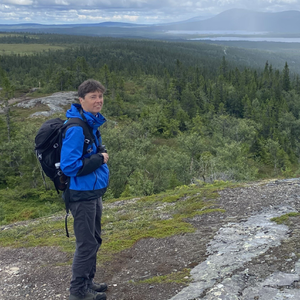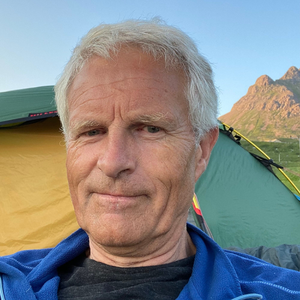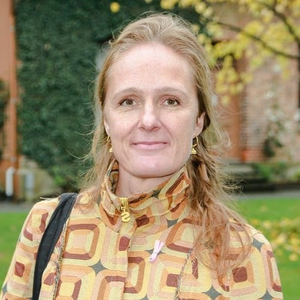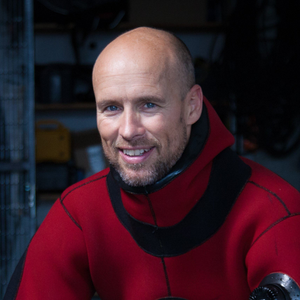
Jane Reid
Rapid evolutionary escape from (marine) climate change?Jane Reid obtained her BA at the University of Cambridge, then her PhD in behavioural ecology at the University of Glasgow. She held research fellowships at the University of British Columbia, University of Cambridge and University of Aberdeen. She is now a professor of population and evolutionary ecology mostly at the Norwegian University of Science & Technology, and partly at the University of Aberdeen. Her main interest is in understanding how populations respond to environmental changes, through combinations of ecological, phenotypic and evolutionary change. She tackles these questions using combinations of advanced statistical analyses of long-term field datasets, and theoretical developments.

Trond Amundsen
Where land meets sea: love life in the kelp-forest, and why it mattersTrond Amundsen is a professor of animal behaviour at NTNU. Amundsen works with questions on the interface of ecology, evolution and behaviour. His main research focus is the dynamics of sexual selection in animals, and how that has shaped male and female morphology, behaviours and reproduction. Amundsen has worked with a range of organisms, including terrestrial and marine birds and fishes in tropical and Nordic waters. His current main model organism is the two-spotted goby fish (Pomatoschistus flavescens), a keystone species in coastal ecosystems. In the ongoing DYNAMAR project, the focus is on the dynamics of sexual selection in a changing ocean.

Inger Måren
Changing social-ecological systems: From the fisher-farmer to post-petroleum coastal livingInger Elisabeth Måren is professor in applied ecology at the University of Bergen where she is also the UNESCO Chair on Sustainable Heritage and Environmental Management. Måren’s background is multi-disciplinary; in addition to a PhD in ecology, she holds a minor in social anthropology, and several other cross-faculty courses. Her research focuses on the dynamics in coupled human and natural systems; so-called social-ecological systems, including sustainable land-use, natural resource management, ecosystem services, agroecology, and sustainable food systems. Måren works with colleagues across the social and natural sciences to elucidate links between anthropogenic activities and the environment, in Europe, as well as in Asia, North America and Africa. Måren has been involved in the development and drafting of Norway's very first UNESCO Biosphere Reserve, in collaboration with the Norwegian Environment Agency.

Even Moland
Recovery of crustacean populations in protected areasEven Moland (b. 1974) is a marine scientist at The Institute of Marine Research, and associate professor in marine conservation science at the University of Agder. His research revolves around the contrast between harvested and protected marine populations, using mark-recapture techniques and acoustic telemetry to study movement, life and fate of individuals to understand how the contrasting regimes might affect populations over time. In relation to this, he is interested in evolution of animal behaviour and the mechanisms that drive harvest selection on behavioural traits in marine animals. He is the PI/coordinator of the Horizon Europe project MARHAB.